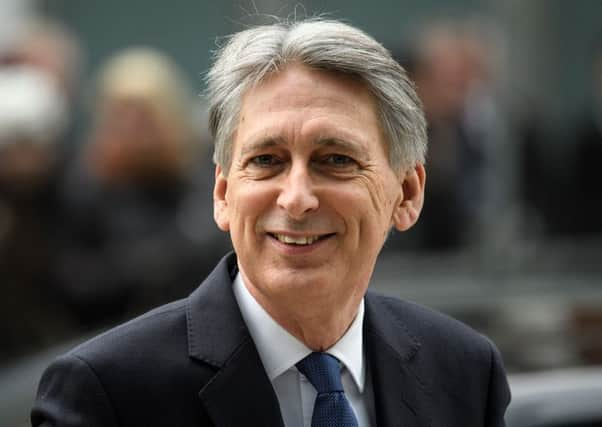Leader: Hammond needs to signal radical action ahead


A public increasingly weary of public spending cutbacks and constraints may wonder why the austerity straitjacket must continue to be applied while much of the preamble to this week’s Budget measures will be devoted to an upbeat presentation on the economy and better than expected numbers on the public finances.
A prominent feature is likely to be the improved surplus in January compared to a year earlier. The figure is set to substantially undershoot the revised 2016-17 fiscal target in November’s Autumn Statement.
Advertisement
Hide AdAdvertisement
Hide AdThere was a surplus of £9.4 billion on Public Sector Net Borrowing excluding banks in January, up from a surplus of £9.1bn in January 2016. January is normally a bumper month for income tax receipts and the latest figures have been buoyed by a better than expected economic performance, stronger household spending and more people in work. Income tax receipts were up 6.1 per cent year-on-year in January, while corporate tax payments were up 5.4 per cent.
The total deficit now looks headed for £56.2bn for the financial year as a whole – well below the Office for Budget Responsibility’s upwardly revised projection of £68.2bn in the Autumn Statement. It would also be down from the 2015-16 outturn of £75.4bn.
Mr Hammond will thus have a little unexpected flexibility in the Budget. But there are several sound reasons for caution. First is that government’s commitment to previous targets have been repeatedly missed. Voters will be rightly wary of a sudden burst of largesse from the Chancellor until there is evidence that the current improvement can be sustained.
Second, he needs to build reserves to help maintain market confidence during Brexit negotiations and to ensure as far as possible that the public finances are protected from unforeseen Brexit shocks.
Third, while near-term economic forecasts have been raised, there is growing evidence that business investment is down and that consumer and business confidence alike is being hit by the onset of rising inflation and the prospect of worse to come. Higher inflation also pushes up government costs while higher interest rates will push up debt servicing costs.
Finally, and arguably most important, the problems which we now face – from serious shortcomings in social care through structural weaknesses in the economy to the challenges of an ageing population – require much more radical solutions than simply the quick fix of throwing money at them. It is for this reason that the Chancellor needs to combine caution on Wednesday with a credible commitment to bold and innovative reform.